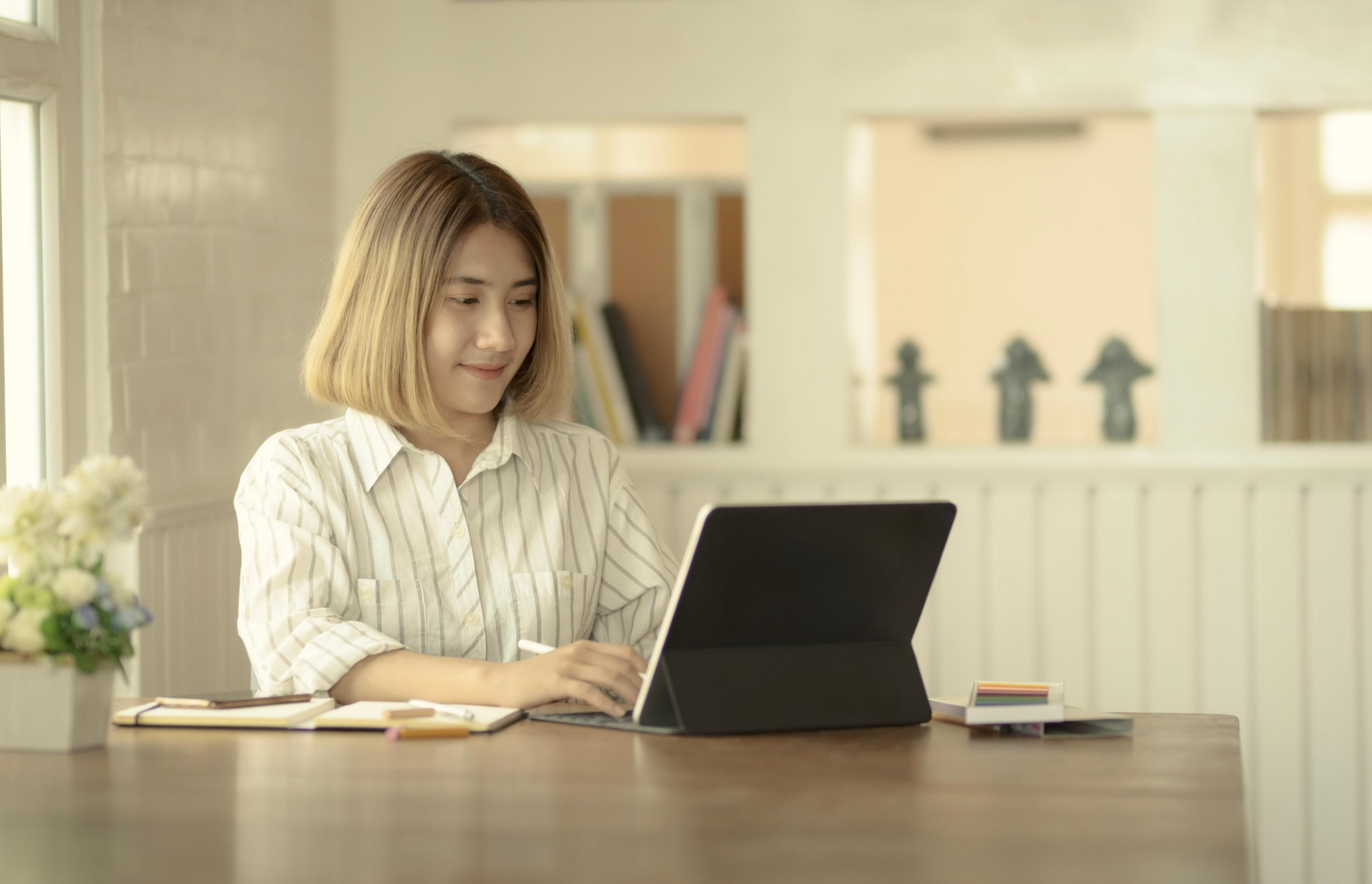Digital consultations, e-consultations, virtual consultations… however you’ve seen people refer to them, remote consultations are an increasingly popular choice among aesthetic practitioners in the midst of the second lockdown. And, if you’re thinking about offering your clients digital consultations, but need a push in the right direction, this article’s got you covered. I reached out to 3 fab practitioners to find out how they’re getting on with e-consultations, and to get their top tips and advice.
What’s the best software for e-consultations?
Deciding how you’re going to deliver e-consultations will depend on a number of things. Which app or platform do you feel most comfortable using? Which platform or app will your clients prefer?
Of the practitioners I spoke to, popular choices include FaceTime, Zoom and GoToMeeting - but there’s also the likes of WhatsApp video calling, Skype and Google Hangouts, too. It may be the case that you have to switch up the video calling service you use for each client to suit their needs.
What are the benefits of offering e-consultations to clients whilst clinics are closed?
Claire Lavery, nurse prescriber from Claire Lavery Aesthetics, told me that e-consultations can be great for helping with clients’ skin needs and checking their progress with medical grade skincare products. “I have clients that are on prescription skin care and I’d normally arrange follow-up appointments with them to see how they’re getting on with the products and make any necessary adjustments. Having a video call is great because you’re actually getting to see their skin and, although it’s on video, it’s face-to-face so you’re maintaining that contact with them.” She goes on to say, “from a business point of view, e-consultations are a really good way of keeping your business going and keeping contact with your clients.”
Dr Claire Ashley, GP from Aethra Aesthetics, also mentions the business benefits of e-consultations. “The benefits of doing e-consults are that you can maintain a relationship with your current patients, meaning that you are likely to improve retention once clinics reopen. You are also helping to prep their skin for future treatments and improve results in the long term. It is also possible to consult with new patients, which is great too. It’s a very flexible way of working so, whilst your clinic is closed, you can be responsive and flexible according to the patient’s availability.”
Roisin Hopkins, nurse prescriber from Allure Aesthetics, says benefits include “keeping in contact with existing patients and being able to build rapport and trust with new ones. They also enable you to educate patients and offer expert advice for future bookings.” And, from a business point of view, she told me that “carrying out skincare consultations allows patients to order products online, which helps with the clinic’s cash flow.”
What do your virtual consultations cover?
What your digital consultations cover is up to you - whether that’s injectables, other aesthetic treatments, or purely skin care.
“We are offering consultations for all treatments, including skin treatments, skin care, injectables, laser hair removal, and skin tightening. We send a medical history and consultation form via email to our patients beforehand. And, once they have filled out the forms and sent them back, we send them an invitation with a time and link where they can access the virtual consultation,” says Roisin.
Claire Lavery is offering e-consultations for a wide range of treatments and concerns. “Skincare is easier because we’re able to send out products - we can post the skincare directly to clients. But I have also used the e-consultations for some clients who I treated a couple of weeks before we closed, giving them an opportunity to ask any questions and enabling me to see how the treatment has progressed. I’ve also had clients ask advice about injectable treatments, ready for when the clinic reopens.”
“I am currently offering skincare consultations, and I have converted the face-to-face consultations I already had booked into e-consultations too (discussing Botox, fillers, etc.). I have rearranged a couple of follow-up consultations to be e-consultations too,” says Dr Claire Ashley.
How do you ensure the security and confidentiality of clients in an e-consultation?
All three practitioners note that privacy is key...
“Security can be challenging when working from home, but is essential,” says Dr Claire Ashley. “Firstly, a quiet and private space, free from interruptions, is necessary to maintain confidentiality. I work from my bedroom and lock myself in it to make sure the kids don’t burst in at an inappropriate moment. And I ensure that I clear any patient photos and put them into my trash after every session. I don’t keep any patient names on my laptop - I just use their initials so they are not immediately identifiable. Finally, my clinic software is kept on my iPad which can only be accessed by fingerprint recognition, and all patient data is saved securely on the cloud.”
Claire Lavery also highlights the importance of a secure setting: “I always make sure I’m on my own - on a one-to-one basis like it would be in a clinic setting. I use electronic patient records through Clever Clinic, which allows me to email consent forms and skincare instructions directly to my client.”
“Using GoToMeeting offers security because each session is private and no unencrypted information is ever stored. And to ensure confidentiality, it’s important to carry out consultations alone in a closed-off room with no interruptions, to respect the client’s dignity,” says Roisin.
What are the drawbacks of e-consultations?
“I think it’s the end - what do you do afterwards? With skin care, you can plan the client’s skin regime, or write up a prescription. But, particularly with clients who want a treatment, there’s a bit of unknown - when are we going to get to do it? And nothing can really beat the one-to-one when you’re sitting in a room with a patient, getting to know them - the conversation flows in a different way. It’s nicer to see their face than it is just to talk to them via a phone,” says Claire Lavery.
Dr Claire Ashley told me that, “drawbacks include not being able to do such a thorough assessment of the skin, as often the picture quality isn’t good enough to get close up - but this can be worked around with photo submissions. To get the best look at a patient’s skin, I would advise getting them to send some photos with their makeup off, prior to the consultation. I also think it is harder to build a rapport with patients when you are not face-to-face with them.”
Roisin adds the following limitations: “We miss body language and connection, patients cannot see the environment in which we perform procedures, and there’s no hands-on assessment of the patient’s concern. There’s also the possibility of poor lighting and camera quality, as well as disruptions in the client’s environment.”
Do you think e-consultations will become more common in future, even after COVID-19?
“Ideally, people should always do a face-to-face consultation. But, hopping onto FaceTime means I’m ready for when the client comes into the clinic to have a chat about what it is they need. Because we don’t know how long this is going to go on for, you’re probably going to have to do a mini-consultation with clients when you see them to make sure nothing has changed,” says Claire Lavery.
When I spoke to Roisin, she agreed that virtual consultations might become more common: “Yes - I believe they may be utilised in the future as they are more convenient and save time for patients. However, practitioners may need to see the clients in-clinic as well for a hands-on assessment. But virtual consultations give a good indication of what they may require.”
Dr Claire Ashley says, “I do think that e-consultations have a huge part to play in the future and how I practise - however, I think after COVID-19 dies down a bit that people will be very keen to have human interaction and will probably initially prefer to see practitioners face-to-face!”
Any other top tips for practitioners offering e-consultations
For Roisin, it’s all in the preparation. She told me, “have all of your relevant information ready, including learning tools and before and after photos. And have product information and pricing to hand when carrying out skincare consultations.” She also notes the importance of looking smart and professional: “Ensure you are well-presented in terms of makeup and clothing.”
And, finally, Dr Claire Ashley’s top tips are: “Be curious, be friendly, be professional. You are promoting a solution to a patient’s problem, not selling them a product.”
If you are going to start providing digital consultations, you should now be feeling super clued-up and equipped with lots of great advice. And, don’t forget, we’ve got tons of other helpful articles to get you through the Coronavirus crisis which you can find here.
Botox is a registered trademark

